Jehad, Qetal vs Terrorism — Where Do We Draw the Line?
Category :
Islam
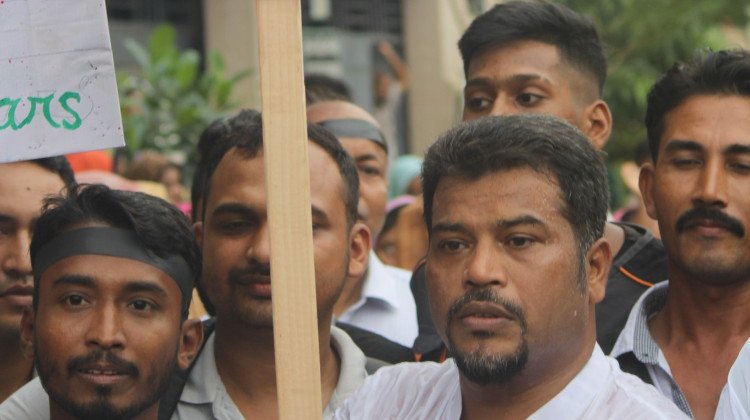
Author ::
Salzar Rahman Sabu
Nov 14, 2025
visibility
273 Read
Establishing Allah’s Religion in All Aspects of Human Life
Whenever the topic of establishing Allah’s religion in every sphere of life arises, a segment of the Muslim population becomes fearful and anxious. These are the people who do not want Allah’s religion to be established in national life under any circumstances. Whenever someone speaks of establishing the religion given by Allah, this group labels them all as extremists or terrorists and attempts to discredit their efforts before the public. They want to equate the Islamic concepts of jihad and Qetal (armed struggle) with terrorism. But jihad and terrorism are not the same—they are completely different matters.
The word jihad means struggle, all-out effort, striving. Speaking about the necessity of establishing religion, writing about it, giving speeches, presenting logical arguments—all of these fall under jihad. Qetal, however, is a completely different term, meaning armed combat. Jihad takes place at the level of individuals, groups, or communities, whereas qital occurs at the state level. If an individual or group takes up arms to establish religion, that is a grave mistake. Their task should be to make people understand—through logic, by referencing the Qur’an and Hadith, by writing books, giving speeches—that if we wish to live in absolute peace, security, and justice in this world, the only path is to live according to the life system prescribed by the One who created us. Can this task be done through force? It is common sense that it is impossible to force anyone to believe in something through coercion.
Hezbut Tawheed has taken it upon itself to carry out this task—by making people understand through logic. Presenting the true essence of Islam is the only way to protect society from the consequences of distorted Islam. Hezbut Tawheed is therefore calling people back to the sovereignty of Allah and is exposing the errors of terrorism using the life of the Prophet and the teachings of the Qur’an and Hadith. In order to spread and establish this truth, Hezbut Tawheed has adopted the Prophet's method. What did the Prophet do? For thirteen years of his life in Mecca, his call, or balagh, was at the individual and group level. He and his followers endured all kinds of persecution, false accusations, and oppression without any retaliation. The mujahideen of Hezbut Tawheed have been calling people to tawheed and the sovereignty of Allah for the past 30 years. In doing so, they have faced insults from opponents, have been humiliated, beaten, brutally oppressed—five of our members have even been martyred.
The Prophet's thirteen-year Meccan life was also filled with one-sided persecution. Later, when the people of Medina accepted his call to tawheed, he migrated there and formed a state. The moment the state was established, the strategy had to change. A state can never function on individual or group principles. When he became the undisputed leader of the people of Medina, he had to act as a judge to settle disputes, punish criminals, and, as a ruler, establish administrative offices (mosques) in different areas and appoint administrators. As the Messenger of Allah, he taught them the Qur’an and trained them spiritually and physically. To ensure the independence and sovereignty of the territory, he needed weapons, soldiers, and military training. As the newly formed state's commander-in-chief, the Messenger of Allah took necessary military steps. Like other state leaders, he waged war to achieve the nation's goals and made peace when needed—but only after the people had entrusted him with the responsibility of leading the nation. Therefore, according to the Prophet's example, there is no Qetal (armed struggle) by individuals, groups, or parties in the propagation and establishment of this tawheed-based true religion. There is only the call to tawheed, to the sovereignty of Allah—only balagh.
At the state level, there can be armed struggle. If weapons and warfare at the state level are not legal, then every military force in the world must be considered illegal and terrorist. The jihad and qital mentioned in the Qur’an and Hadith are state-level actions.
Some muftis at various times issue fatwas to kill so-called enemies of Islam, and some people take up machetes to act on these fatwas, trying to equate their actions with the Prophet's military campaigns. But are these people appointed judges nominated by the nation to deliver such verdicts? Or are they self-declared leaders without any recognition? They are not even recognized by the public, let alone being appointed as judges. On what authority or power are they issuing death sentences? Have they studied some masail in a madrasa and declared themselves the state’s qadi?
We are trying to make people understand—through the Qur’an and Hadith, using logic and evidence—that without a tawheed-based religion and life system, there is no alternative path to peace and security for humanity. The current chaotic state of the world is proof of that. There is no room for coercion here. It is common sense that people cannot be forced to believe in anything. If people accept this message, a tawheed-based system will be established in the country, and they will attain peace and honor in both this life and the next. But if people reject our call and cling to human sovereignty, they will suffer the consequences. Still, no matter how much the supporters of the current system oppose us, we must continue striving to uphold Allah’s true religion.
Images Related to this Post
Related Post
Search
Popular Post
Recent Post
Tags
Hezbut_Tawheed
Imam Hossain Mohammad Salim
Bangladesh Violence
Religious Extremism
Mob Attacks
Human Rights Violations
Minority Persecution
Rangpur Attacks
Jamaat-E-Islami
Hefazat-E-Islam
Tawheed
Muslim Ummah
Islamic Unity
Shirk
Kufr
Islamic Revival
Kalima-E-Tawheed
Obedience To Allah
Deen-Ul-Haq
Hizb-Ut-Tawheed
Ram Temple
Third Temple
Ayodhya
Jerusalem
Religious Politics
Babri Masjid
Al-Aqsa
Zionism
Hindutva
Netanyahu
Religious Hate
Muslim Unity
Noakhali Conference
Imam Salim
Islamic Movement
Shahidi Jame Mosque
Ht Members Conference
Bangladesh Religious Persecution
Islamic Reform Movement
Extremist Violence
Human Rights Bangladesh
Sonaimuri Noakhali Attack
Political Extremism Bangladesh
Faith-Based Violence
Eid Al‑Fitr
Zakat Al‑Fitr
Ramadan Charity
Islamic Social Justice
Community Harmony
Bangladesh Poverty
Islamic Economy
Sadaqah
Fitrana
Eid Unity
Arab History
Islamic Governance
Caliph Umar
Social Transformation
Women’s Rights In Islam
Justice In Islam
Political Systems
Islam Vs Democracy
Islam And Knowledge
Islamic System
Prophet Muhammad
Farewell Sermon
Hajj
Global Peace
Human Rights In Islam
Dhul-Hijjah
Arafat Sermon
Islam Vs Un Charter
Unemployment In Bangladesh
Education System Failure
Educated Unemployment
Jobless Graduates
British Education Legacy
Youth Crisis
Hezbut Tawheed Views
Bids Report
Ssc To Masters Job Race
Middle Class Dilemma
Kerani Mentality
Excessiveness In Religion
Religious Distortion
Overinterpretation Of Islam
Misguided Enthusiasm
Warnings Of The Prophet
True Islam
Spiritual Clarity
Abandoning The Mission
Chormonai Pir
Desherpotro
Islamic Reform
Persecution In Bangladesh
Religious Violence
Jamaat-E-Islami Attacks
Islamic Truth Movement
Women And Knowledge
Islamic Feminism
Gender Roles
Social Awareness
Muslim Women
Female Empowerment
Islamic History
Qur’anic Guidelines
Obeying Allah’s Commands
Islam And Suffering
Workers' Rights In Islam
Labor Justice
May Day Islam
Islamic Society Model
Chashirhat Development
Imam Hossain Mohammad Selim
Islamic Brotherhood
Fair Wages
Islamic Military Strategy
Tawheed-Based State
National Security
Qur’anic Warfare
Mujahideen
Peacekeeping
Modern Islamic Army
Military Training
Ummah Defense
Sharia Governance
Southasia
Extremism
Bangladesh
India
Pakistan
Myanmar
Jihad
Islamophobia
Radicalism
Resistance
Conflict
War
Terrorism
Proxywar
Bjp
Hasina
Ghazwa
Kashmir
Rohingya
Arsa
Militancy
Ideology
Unity
Awareness
Injustice
Arms
Geopolitics
Gaza
Hypocrisy
Taliban
Alqaeda
Afghanistan
Syria
Iraq
America
China
Russia
Media
Violence
Oppression
Nationalism
Muslim
Islam
Justice
Youth
Leadership
Sovereignty
Hezbuttawheed
Mosque
Governance
Society
Administration
Education
Military
Economy
Women
Culture
Law
Quran
Hadith
Prayer
Madinah
Baytalmal
Amir
Discipline
Khutba
Transparency
Spirituality
Training
Morality
Ummah
Prophet
Sharia
Community
Peace
Development
Security
National
Khutbah
Sabr
Zakat
Sufism
Equality
Mosquesystem
Participation
Aqiqah
Accountability
Tradition
Modernity
Ummati Muhammad
Unity In Islam
Sunnah
Islamic Teachings
Muslim World
Deen Of Islam
Security Crisis
National Unity
Political Unrest
Military Vulnerabilities
Strength
Solidarity
Disunity
Muslim Nations
Women's Rights
Rufaidah Panni
Eid Congregation
Islamic Women Empowerment
Social Justice
Equality In Islam
Momen
Kafir
Mushrik
Allah's Laws
Faith In Islam
Belief In Allah
True Believers
Kalimah
Shariah
Justice And Peace
Political Parties
Multiparty Democracy
Political Factionalism
Islamic Political System
Democracy Vs Islam
Secularism
Political Ideologies
Islamic Law
Political Vision
Governance Without Parties
Political Stability
Islamic State
Shura System
Islamic Perspective
Women’s Reform Commission
Family Law
Inheritance Law
Labor Recognition
Shariah Law
Gender Equality
Religious Opposition
Feminist Movement
Human Rights
Political Debat
Arab Society
Islamic Economic Justice
Military Transformation
Education In Islam
Judicial Independence
Accountability In Islam
Islam And Democracy
Societal Transformation
Governance Systems
Surah Yaseen
Islamic Guidance
Religious Work
Misguidance
Imam Role
Religious Commercialization
Truth And Falsehood
Religion And Society
Quranic Teachings
Ethical Leadership
Spiritual Struggle
Religious Scholars
Religious Corruption
Quranic Verses
Islamic Scholars
Prophet Muhammad (S.a.w)
Military Nation Of Islam
Sahabah
Lost Legacy
Ummah Of Muhammad
Jehad
Qetal
Islam And Violence
Islamic Leadership
State Vs Individual Struggle
Allah's Help
Islamic Reflection
Divine Support
Muslim World Crisis
Quran Teachings
Islamic Awakening
Qurbani
Bangladesh Politics
Eid Ul Adha
Islamic Sacrifice
Bangladesh Crisis
Global Conspiracy
Sacrifice
Labour Rights
Employment Crisis
Bangladesh Economy
Wage Gap
Inflation
Unemployment
Education Reform
Job Creation
Income Inequality
Post-Pandemic Economy
Eid-Ul-Azha 2025
Bangladesh Eid Congregation
Eid Prayer 2025
Women's Participation
Peace & Justice
Bangladesh Religious Events
Eid-Ul-Azha Message
Khilafah
Global Oppression
Islamic Festivals
Quranic Guidance
Spiritual Sacrifice
Ibrahim's Sacrifice
Eid Mubarak
Peace Through Tawheed
Women's Reform Debate
Bangladesh Women's Rights
Hezbut Tawheed Position
Islamic View On Women's Rights
Legal Reforms Bangladesh
Family Law Reform
Inheritance Rights
Sharia Law Bangladesh
Women's Equality
Western Influence
Religious Groups Debate
Gender Equality Islam
Islamic Social Solutions
Women's Dignity In Islam
Islamic Solutions
Beyond Politics
Labor Rights
Class Struggle
Economic Solutions
May Day Analysis
Economic Justice
Divine Accountability
Global Economic Crisis
Capitalism Vs Islam
Socialism Vs Islam
Savar Attack
Ishwardi Attack
Religious Fanaticism
Political Manipulation
Islamic Extremism
Government Response
Democratic Threats
Islamic Teachings Misuse
Radical Ideology
Communal Conflict
Radical Groups In Bangladesh
Terrorism In Bangladesh
Islamic Rights
Mosque Access
Eid Prayer
Muslim Women Empowerment
Prophet Muhammad Teachings
Women In Mosques
Women Rights In Islam
Gender Equality In Islam
Masjid An-Nabawi
Women's Role In Islam
Misconceptions About Women
Women Participation In Mosque
Eid Khutbah 2025
Islamic Sermon
Hossain Mohammad Selim
Bangladesh Eid
Qurbani Meaning
Women In Islam
Rufaydah Panni
Islamic Congregation
Female Participation In Eid
Chashirhat Eid
Palestine Solidarity
Eid Prayer Bangladesh
Women In Eid
Kushtia Rally
Gaza Crisis
Muslim Persecution
Bangladesh News
Peace Movement
Humanity
Divine Law
Social Reform
Religious Harmony
Truth
Call To Action
Palestine
Dajjal
Islamic Struggle
Mohammad Bayazid Khan Panni
Genocide
Oic
Protest
National Press Club
Rangpur Attack
Religious Reform
Karwan Bazar Protest
Terrorist Attack
Law And Order Failure
Emamht
Ht_In_Brief
Pabnaattack
Justiceforvictims
Humanchain
Politicalviolence
Legalreform
Endimpunity
Bangladeshjustice
Hezbuttawheedleaders
Demandjustice
Pabnapressconference
Policeinaction
Proposedgovernancesystem
Islamicstatesystem
Allahslaw
Economicreform
Educationreform
Capitalismcritique
Dhakaevent
Purposeofcreation
Humancreation
Khalifah
Allahsplan
Divineguidance
Adamsstory
Islamicteachings
Peaceandjustice
Sovereigntyofallah
Lailahaillallah
Islamiccreed
Aqidah
Islamicfaith
Iman
Deen
Peaceinislam
Purposeofislam
Beliefsystem
Faithandworship
Why
Escalate
Mohammad Bayazeed Khan Panni
Hossain Mohammad Salim
Religious
Extremist
Interfaith
Situation
Ultimatum
Threats
Extremist Attack
Attack
Movement
Barakat Hossain Osama
United Kingdom
Conservative Party
Donald Trump
Secular Leadership
Fanatical Populace
Fanatical
Populace
Religion
Extensive Damage
Catastrophic Flooding
High School
Urgent Help Needed
Devastated
Allah
Modus Operandi
Messenger
Believer
Messenger Of Allah
People
Human
Jame Mosque
A Cornerstone
Cornerstone
A Just Society
The Establishment
Establishment
History
Messenger Muhammad
Simple And Straightforward
Who Made
The Simple
Complex
Way Of Life
Jannah
Way To Jannah
Civilization
Religious Figures
Survive
Politics
Worship
Establish
Goals And Objectives
System Of Life
Money
Tolerance
Madness
Mo'men
Today’s
Educated
Needs
Corruption
British
Government
Democracy
Communism
Socialism
Political
Secular Education
Responsible
The Reign
Hindu
Terrifying
Slavery
Jewish Conspiracy
The Protocols Of The Elders Of Zion
Politician
Give And Take
Education System
European
Population
Mentality
Slave
Preface
Children
The Quran
The Miracle
Creator
The Creator
Creation Of Man
The Creation Of Man
Premise
First Words
Aqida
The Programme
The Messenger
Mankind
Actual
Concept Of Islam
Crossroads
Mojeza
The Call
Panni
The Author
Qur'an
Process
The Process
A Person
Tabook
The Special Three
Special
The Tabook
The Ahzab
Ahzab
Khandak
The Uhud
Uhud
The Badr
Badr
Ebadat
Ma'bud
Vicegerent
Worshipper
Aqaed
The Reasons
Reasons
Reason
Adam
Eblis
Khalifa
Angels
Adam And Eve
Adam And Hawa


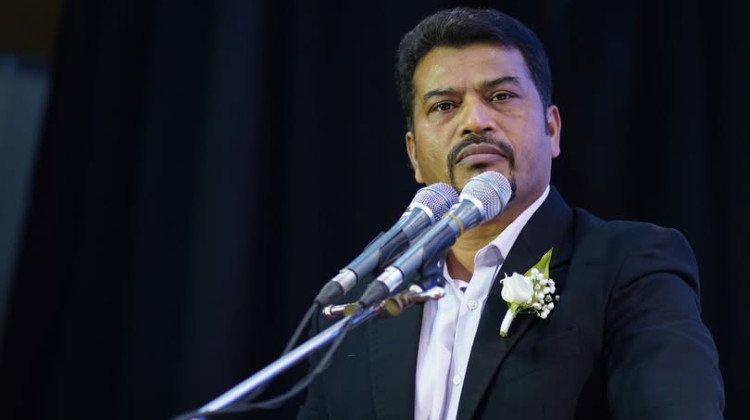
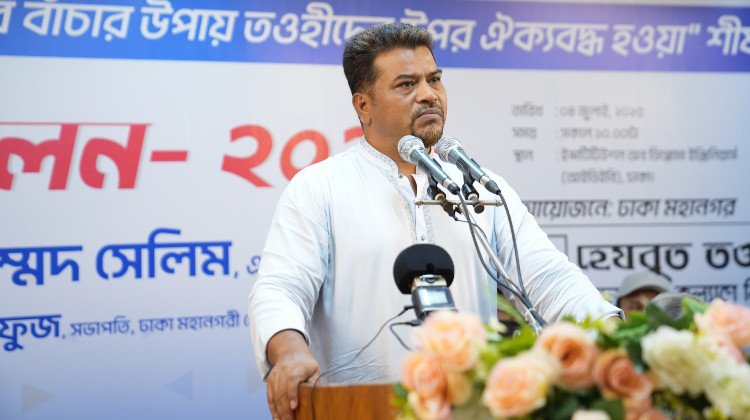







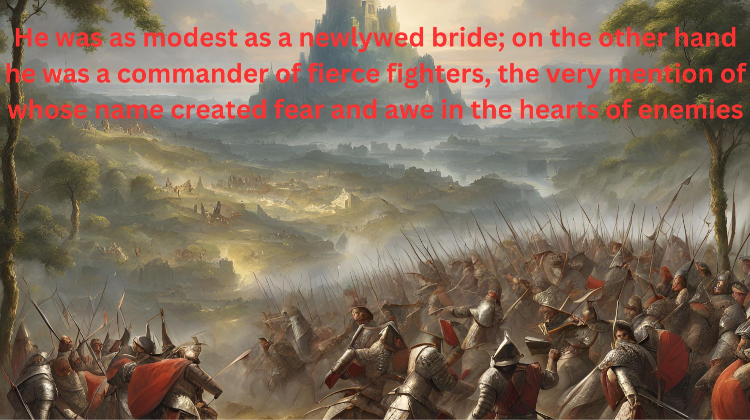

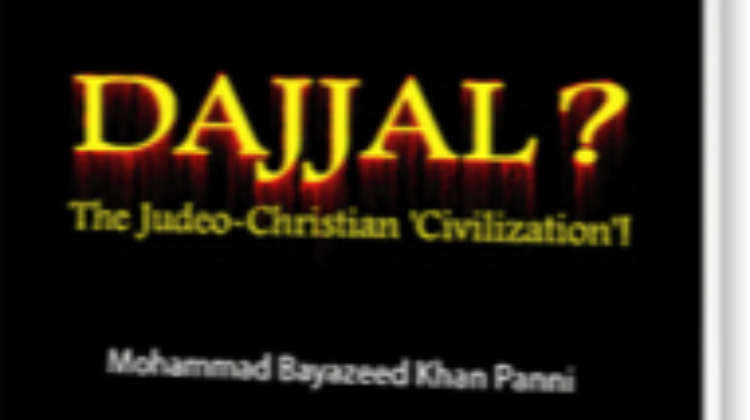

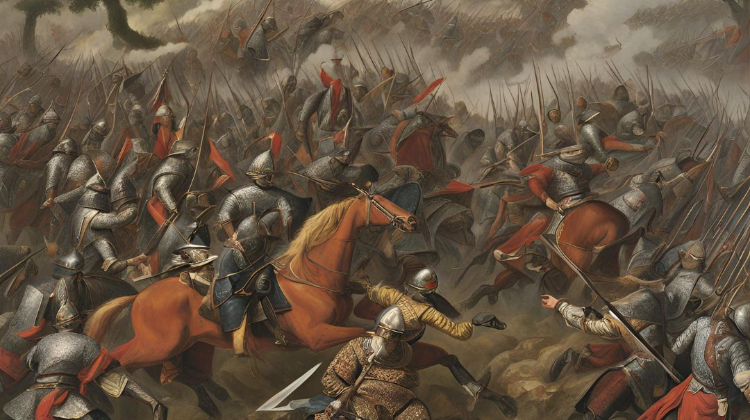
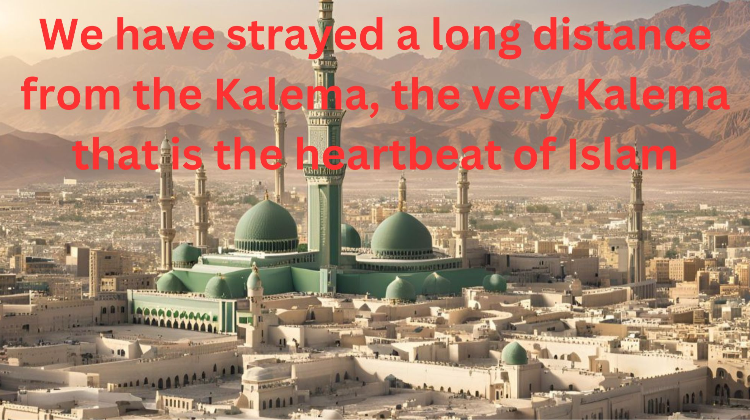
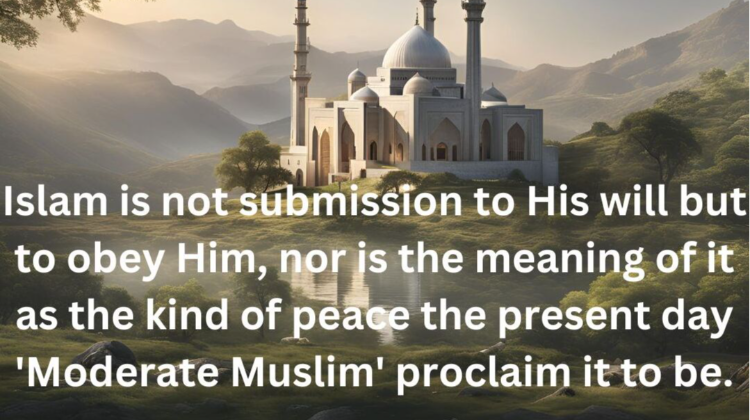

Leave a Comment